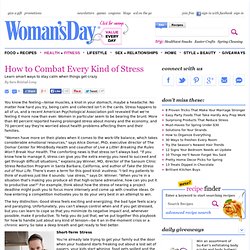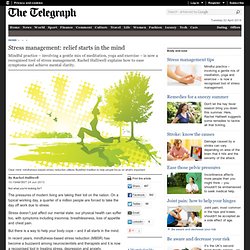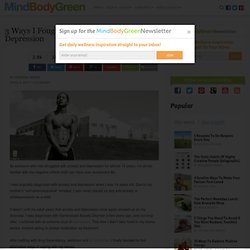

Want To Stop Your Antidepressant? Here's How. Note: The author acknowledges, with great compassion, that this is a challenging topic for the many individuals who make the difficult decision to begin treatment with psychiatric medication.

All patients must be given the most complete and accurate information about these medications, including side effects (risk for dependence, violence, impulsivity, etc), the importance of properly tapering off medication, the institutional incentives for medical doctors, educators, and others to advocate for their use, and the availability of effective non-pharmaceutical avenues of treatment that can address root causes of mental illness and behavioral problems. What follows herein is a discussion of steps that the author believes should be taken in anticipation of any medication taper, and the subsequent taper should be handled by an experienced professional. If you squeeze a spring and you hold it there, steadily for a couple of hours, and then you suddenly let go, what happens? So what? 1. 2. 11 Easy Ways to Meditate (Or, There's No Such Thing As Being Bad At Meditation) Tiny Buddha: Wisdom Quotes, Letting Go, Letting Happiness In.
How to Combat Every Kind of Stress. You know the feeling—tense muscles, a knot in your stomach, maybe a headache.

No matter how hard you try, being calm and collected isn’t in the cards. Stress happens to all of us, and a recent American Psychological Association poll revealed that we’re feeling it more now than ever. Women in particular seem to be bearing the brunt: More than 80 percent reported having prolonged stress about money and the economy, and 70 percent say they’re worried about health problems affecting them and their families. “Women have more on their plates when it comes to the work-life balance, which takes considerable emotional resources,” says Alice Domar, PhD, executive director of The Domar Center for Mind/Body Health and coauthor of Live a Little! Breaking the Rules Won’t Break Your Health.
The key distinction: Good stress feels exciting and energizing; the bad type feels scary and paralyzing. Short-Term Stress What's Going On Your body’s stress response—called fight-or-flight—kicks into gear. Breathe. Stress management: relief starts in the mind. Inherited from Buddhist tradition, mindfulness uses techniques such as meditation, gentle yoga and mind-body exercises to help people focus mentally on the present moment.

Patients are taught to immerse themselves in the here and now, to help filter out the constant chatter in their heads. Many therapies tell you to zone out or switch off, but mindfulness is different. Instead, it focuses on helping you pay attention to the present – rather than being distracted by the past or projecting into the future. It is a form of brain training that uses your breathing to achieve mental clarity – the idea is that you declutter the brain to make room for calmness. It has also been found to give sufferers greater control over anxiety, depression and even chronic pain. The aim is to become more aware of your thoughts and feelings, but in a dispassionate way.
The NHS supports mindfulness practice. It has been embraced by big business – Google offers it to employees – and the Home Office. 3 Ways I Fought Back Against Anxiety & Depression. As someone who has struggled with anxiety and depression for almost 15 years, I’m all too familiar with the negative effects both can have over someone's life.

I was originally diagnosed with anxiety and depression when I was 14 years old. Due to my mother's “anti-pharmaceutical” mindset, I was never placed on any anti-anxiety or antidepressants as a child. It wasn’t until my adult years that anxiety and depression once again showed up on my doorstep. I was diagnosed with Generalized Anxiety Disorder a few years ago, and not long after, I suffered with an extreme bout of depression. This time I didn’t take heed to my moms advice, instead opting to accept medication as treatment. After battling with drug dependency, addiction and an overdose, I finally decided to find alternative ways of coping with my issues.
I was able to not only kick my dependence to medication but, I was also able to remove the shackles that anxiety and depression had me in. 1. 2. 3.